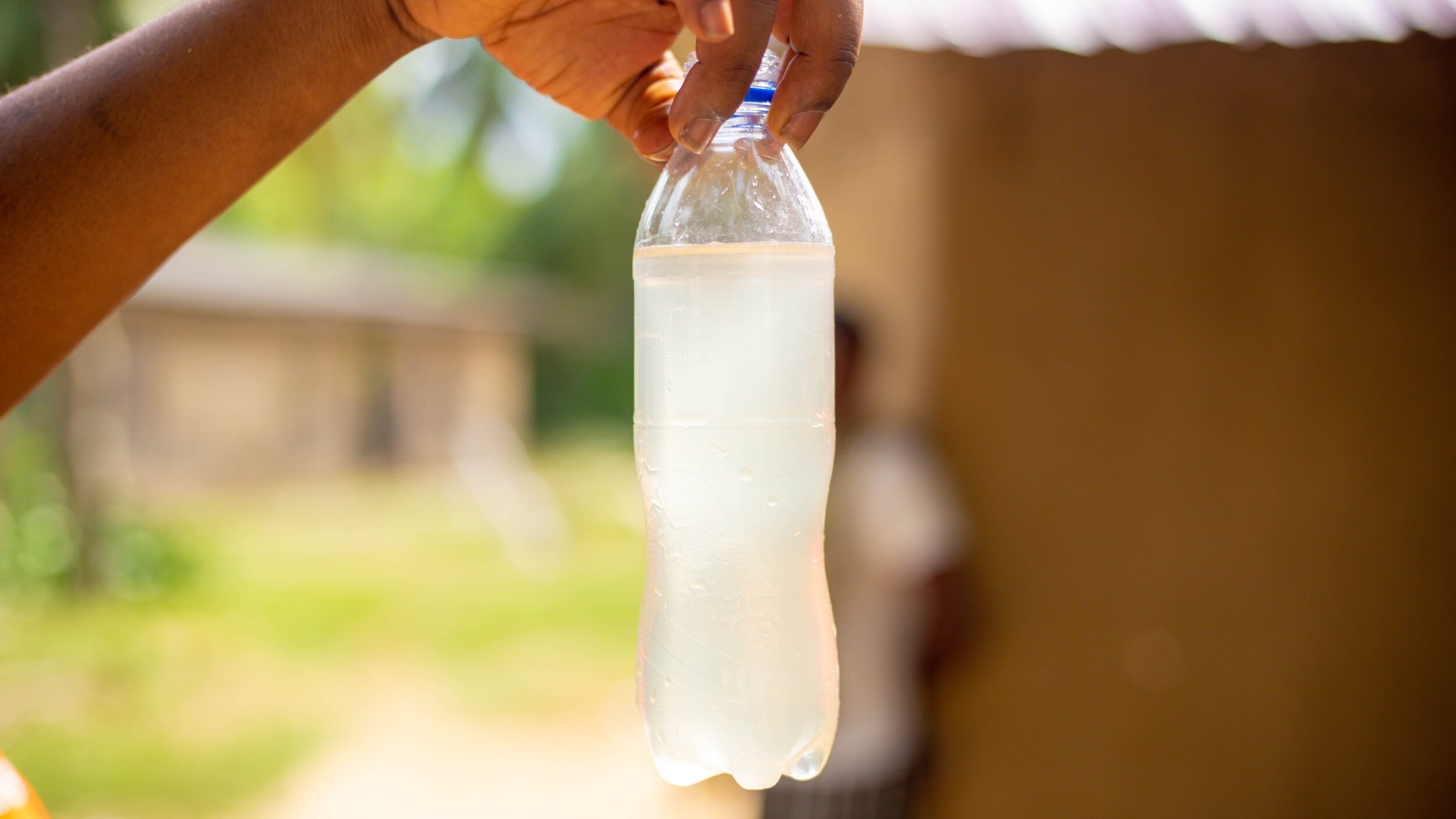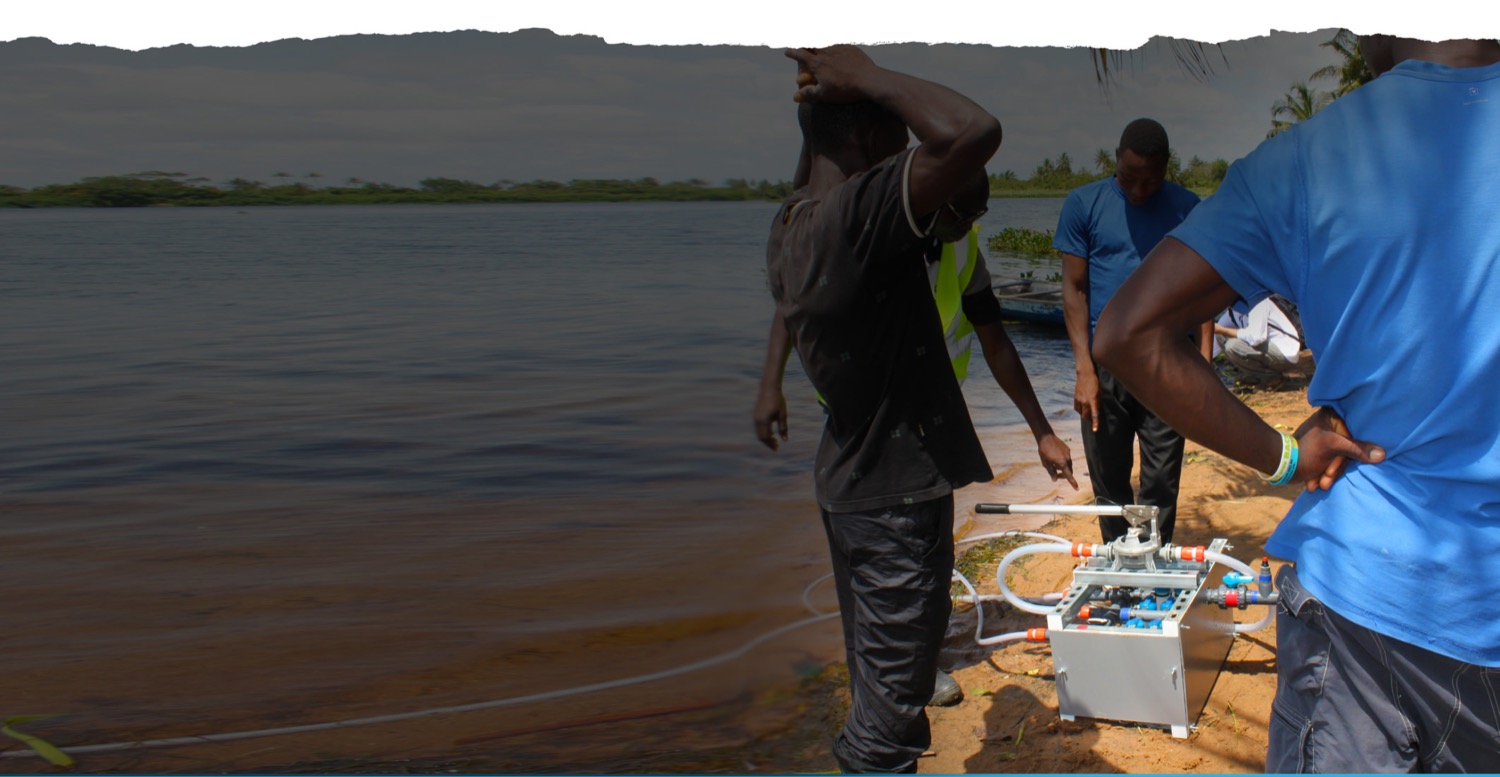
Revolutionary Water Purification Inspired by Nature’s Design
Inspired by the body’s natural filtration processes, our innovative water purification technology tackles the challenge of transforming water sources containing harmful pathogens like bacteria, protozoa, and viruses into pure, drinkable water. Utilizing advanced, repurposed filter (hemodialyzer) originally designed for medical use, this system effectively removes all pathogens, ensuring pure water for those in need.
HOW IT WORKS: NUF500 Diagram
Our system’s mechanics are fairly straightforward. Contaminated water is forced through the filter by a gravity feed system, producing approximately 126 gallons of purified water per hour.
18 kg
Device Total weight (Approx 40lbs)
Repurposed, sterilized hemodialysis filters
8 liters
Pure water production per minute / with Gravity Flow
Passive parts: 8 repurposed, sterilized hemodialysis filters and a pump diaphragm
Filtered substances: all components larger than 0.003 microns: suspended solids, bacteria, viruses (at 6-7 LOG rejection rate); organic matter bigger than 0.003 microns.
Pure water production/hour/device pumped: 8 liters/minute. Gravity-driven systems produce about half that rate.
8 filters

Current efforts
We have formulated a number of research projects to collect and examine data from villages and healthcare facilities at various levels before and after the implementation of the NUF500. We've also developed case report forms that are being used by community workers and clinical research coordinators for data collection in the studied communities and the respective healthcare facilities.
To assess for effect modifiers and factors modulating the relationship between the provision of clean water and health outcomes, we collect additional data such as the demographics of households, household size, and the presence of sanitation facilities, etc.

































